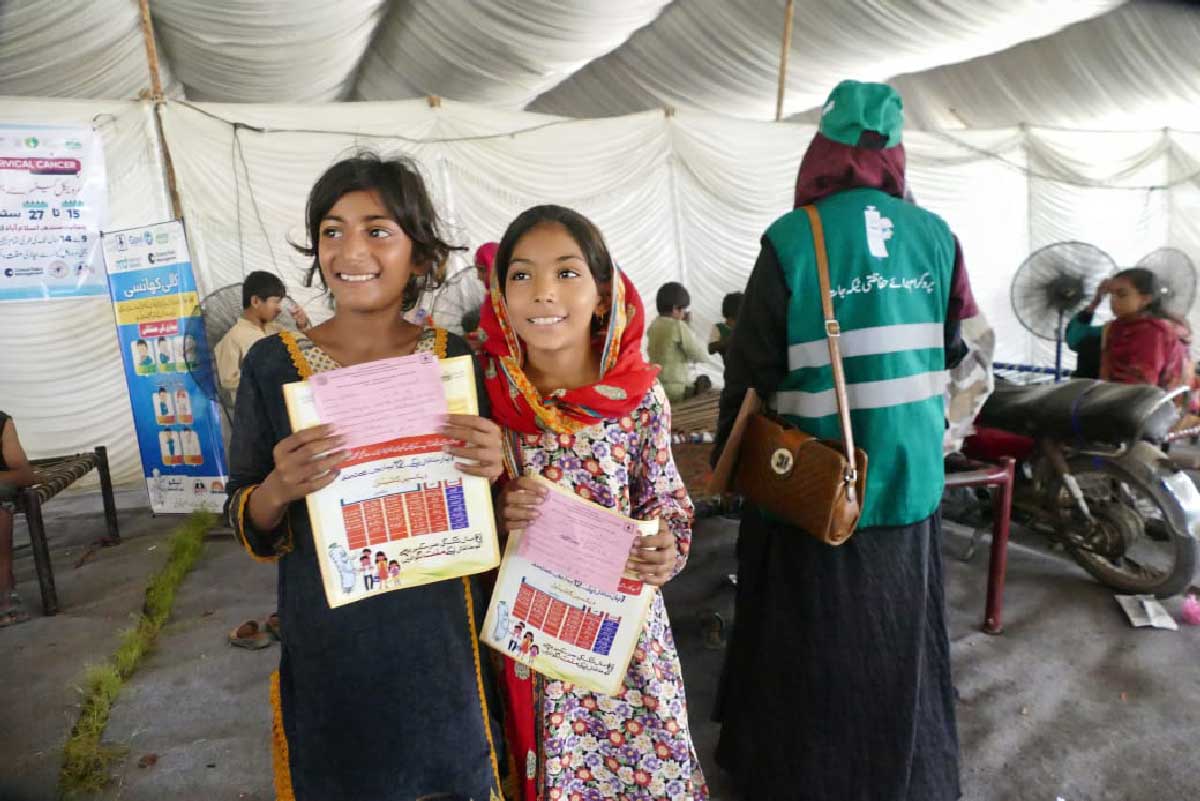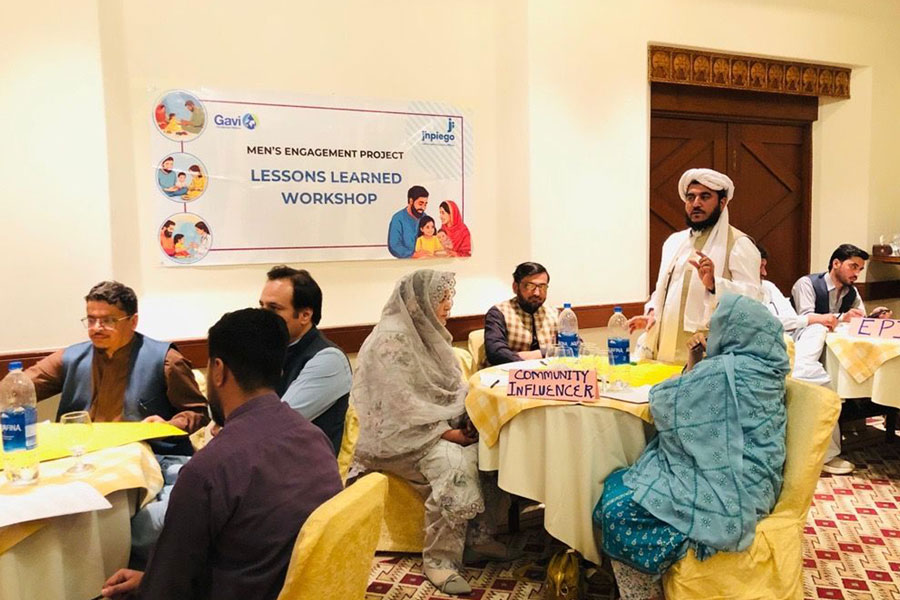In colossal push, Pakistan’s Khyber Pakhtunkhwa province pledges to vaccinate 90% of under-twos by 2027
The target represents a 35% bump on current immunisation rates – and a huge step closer to safety in a province known as the epicentre of Pakistan’s polio problem.
- 18 August 2025
- 4 min read
- by Adeel Saeed
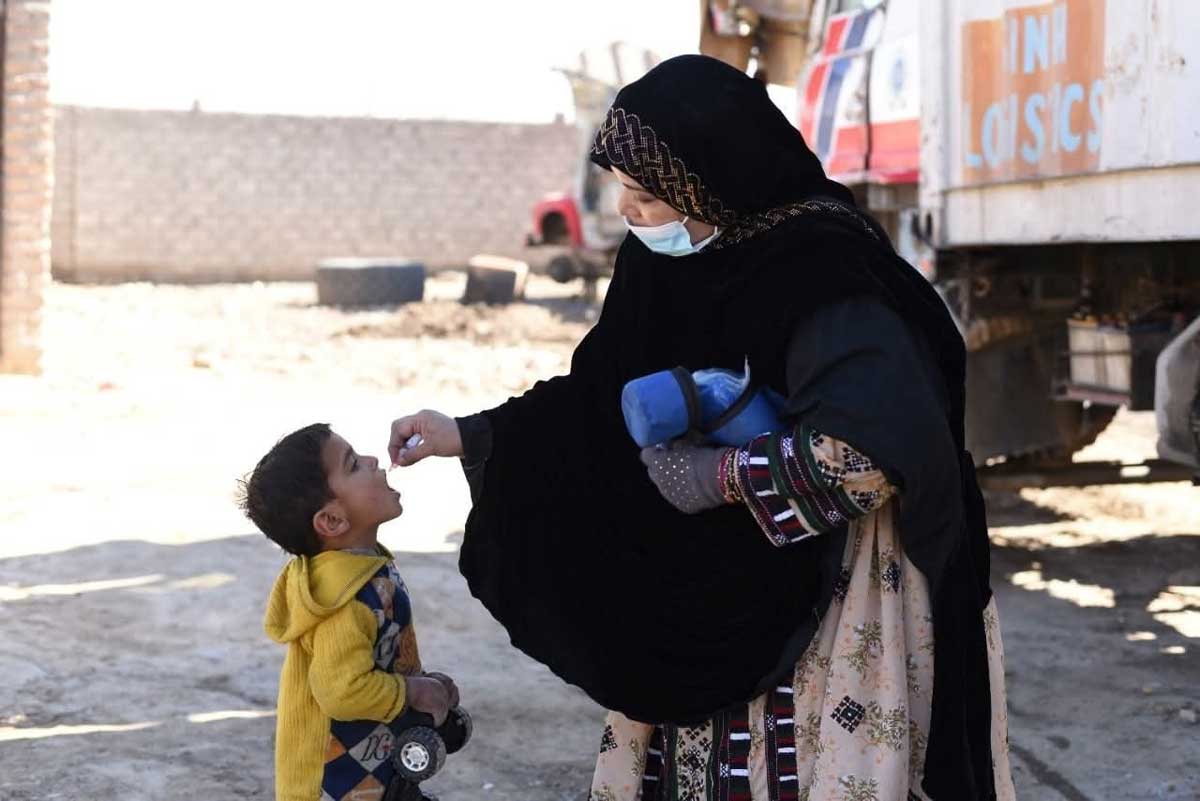
In a major push to safeguard children’s health – and hopefully help to eradicate polio – Pakistan’s Khyber Pakhtunkhwa (KP) province has set out an ambitious plan to ramp up routine vaccination coverage.
The province aims to increase immunisation rates from the current 55% to 90% by the year 2027, by reaching out to thousands of children who missed essential vaccinations because they lived in hard-to-reach areas, or because their parents refused immunisation, or who were missed out as a consequence of cross-border displacement or security concerns.
To close the gap, around 1.42 million children under the age of two will be vaccinated each year against preventable diseases, protecting them against polio, diphtheria, tetanus, mumps, hepatitis B, pertussis, rotavirus, rubella, meningitis, pneumonia, typhoid and measles.
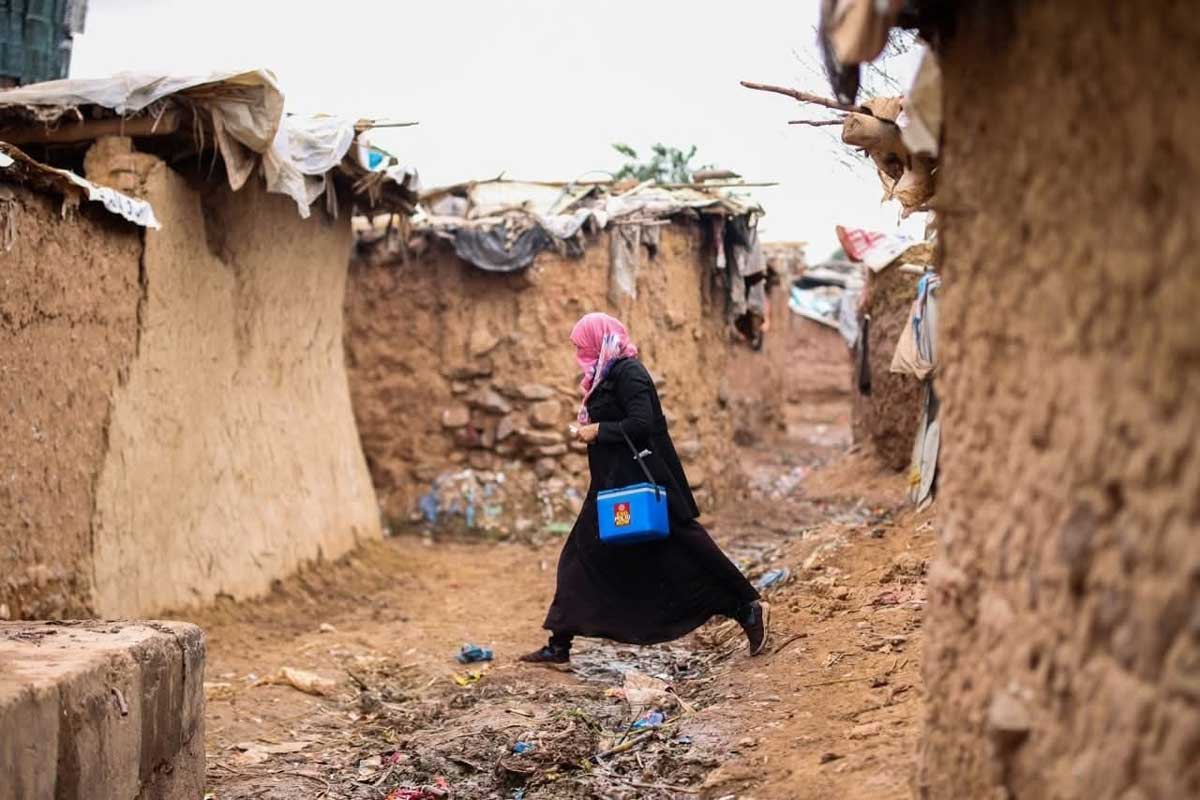
Challenges in high-risk zones
Situated along a porous border with Afghanistan, the southern districts of KP remain volatile and high-risk security zones, where vaccinators routinely face threats, including targeted attacks.
This persistent insecurity has severely disrupted immunisation efforts, leaving large segments of the population, especially children, vulnerable to diseases including polio. Global vaccination efforts mean that the wild-type poliovirus – which once paralysed children in every country worldwide – is now endemic only to Pakistan and Afghanistan.
Many consider KP the epicentre of Pakistan’s ongoing polio crisis, with 11 of the 18 confirmed poliomyelitis cases reported nationwide this year having been contracted in the province.
According to Pakistan Polio Eradication Programme, a total of 350 polio cases have been registered in Pakistan since 2019, and 172 of those were in children from KP.
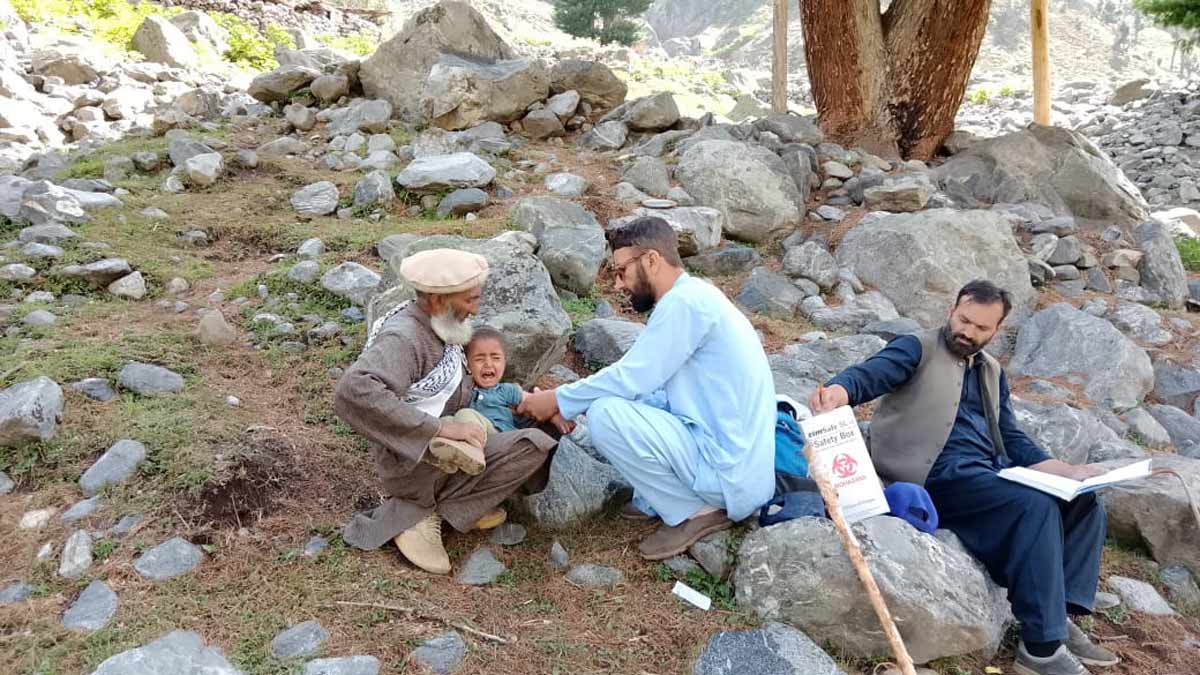
New push a “turning point”
Unveiling the plan last month, Chief Minister of Khyber Pakhtunkhwa Ali Amin Gandapur hailed the initiative as a “turning point” in the province’s public health efforts. He lauded the strategy as a comprehensive approach, encompassing digital data registration, community engagement and field level monitoring.
“Although achieving the targets of the action plan is challenging, it’s not impossible,” remarked Gandapur while speaking at the inaugural ceremony. “With better teamwork, determination and hard work, those targets could be accomplished.”
The “team” in question included international partners Gavi, UNICEF and the World Health Organization, whose “generous support and continued collaboration” the Chief Minister applauded.
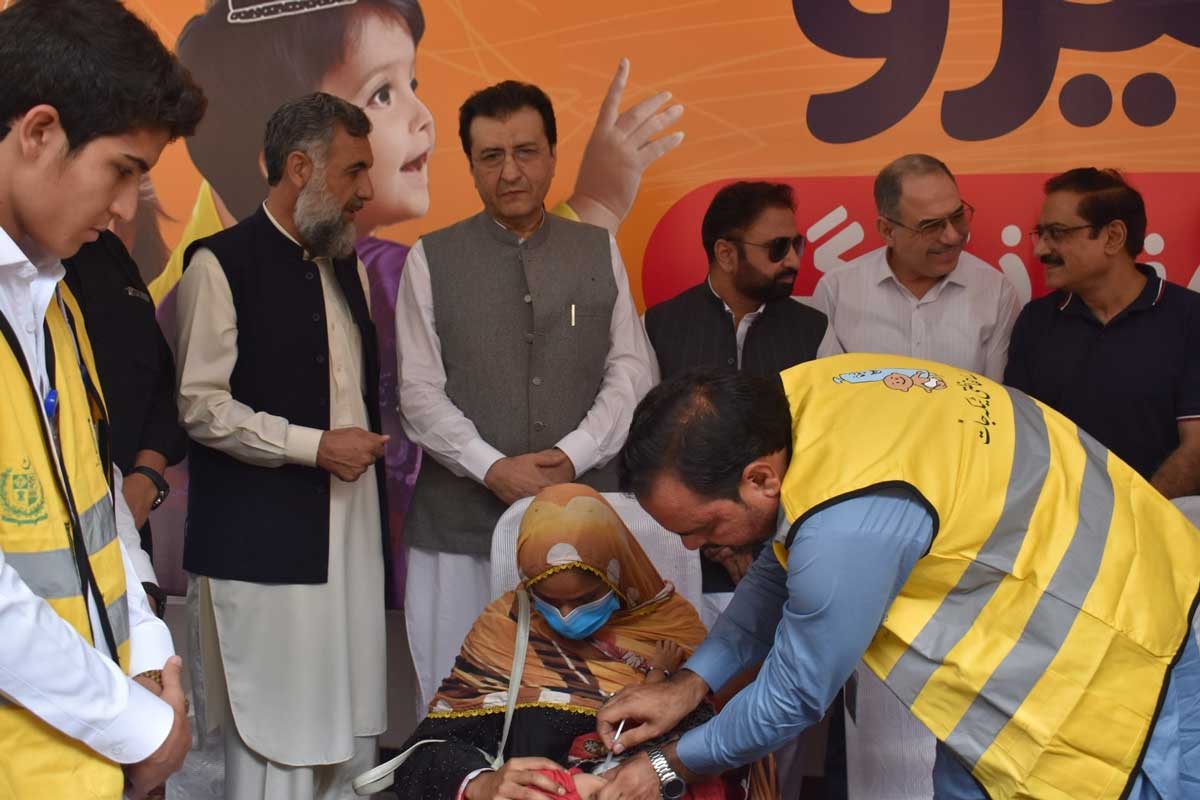
The route to 90%
“The initiative outlines an eight-point strategy to ensure no child is left behind with a special focus on underserved and hard-to-reach areas,” said Chief Secretary of Khyber Pakhtunkhwa, Shahab Ali Shah, speaking to media.
Dr Asghar Khan, Director of the provincial Expanded Programme for Immunization (EPI) explained further. “This immunisation plan emphasises improved surveillance, increased vaccine uptake and community-driven solutions to reach every child,” he told VaccinesWork. “To ensure effective implementation of immunisation plan, the government will enhance the capacity of vaccination teams and increase transport budget.”
In the current fiscal year, the KP government has earmarked 8 billion Pakistani rupees (US$ 2,826,855) for immunisation, including 5 billion Pakistani rupees (US$ 1,766,780) for the purchase of vaccines.
“Over 1,800 vaccination centres will be fully operationalised, each equipped with trained staff, cold chain facilities and a steady supply of vaccines,” Dr Khan elaborated.
A monitoring mechanism over implementation progress is also chalked out. The Chief Secretary will chair regular evaluation committee meetings.
Teams will be constituted with the specific task of reaching the hardest-to-reach and security-compromised Southern districts of the province, engaging local people in the immunisation drives. Special immunisation campaigns will be launched in around 200 union councils where immunisation is weak due to law and order situations, or a tendency for vaccine refusal amongst parents.
Similarly, local Civil Society Organisations (CSOs) will be engaged in lower-coverage areas to help build public awareness regarding vaccine importance and acceptancy, Dr Asghar continued.
Have you read?
Broad allegiance
“WHO fully supports this initiative, along with the immunisation strategy to eradicate polio and eliminate measles, maternal and neonatal tetanus (MNT) that continue to pose serious public health threats,” said Dr Muhammad Babar Alam, WHO Team Lead.
Meanwhile, Shafiullah Khan, Coordinator of the Emergency Operation Center (EOC) – a key component of the Pakistan Polio Eradication Initiative – for KP called the ambitious new strategy the “need of the hour”.
“Despite several challenges, Khyber Pakhtunkhwa has made remarkable strides in fight against polio, yet the risk remains in certain high risk districts,” he added.
Those strides are quantifiable: the number of zero-dose, or unvaccinated, children has registered a decrease from 80,144 in February 2025 to 58,319 in May, according to data cited by Shafiullah.
Prof Dr Abdul Gahfoor, a member of the Religious Support Persons (RSPs) forum assisting the health department in promoting vaccine awareness among the public, said he looked forward to improved coverage.
Meanwhile Rafasit Qamar, President All Khyber Pakhtunkhwa Lady Health Workers Union, lobbied for recognition of the role the female frontliners – of whom there are about 15,000 in KP – will play in the initiative. “For making the immunisation plan successful and ensuring house-to-house vaccination, Lady Health Workers should be empowered with a leading role that will help in bridging the gap between communities, caregivers and healthcare system,” she said.

